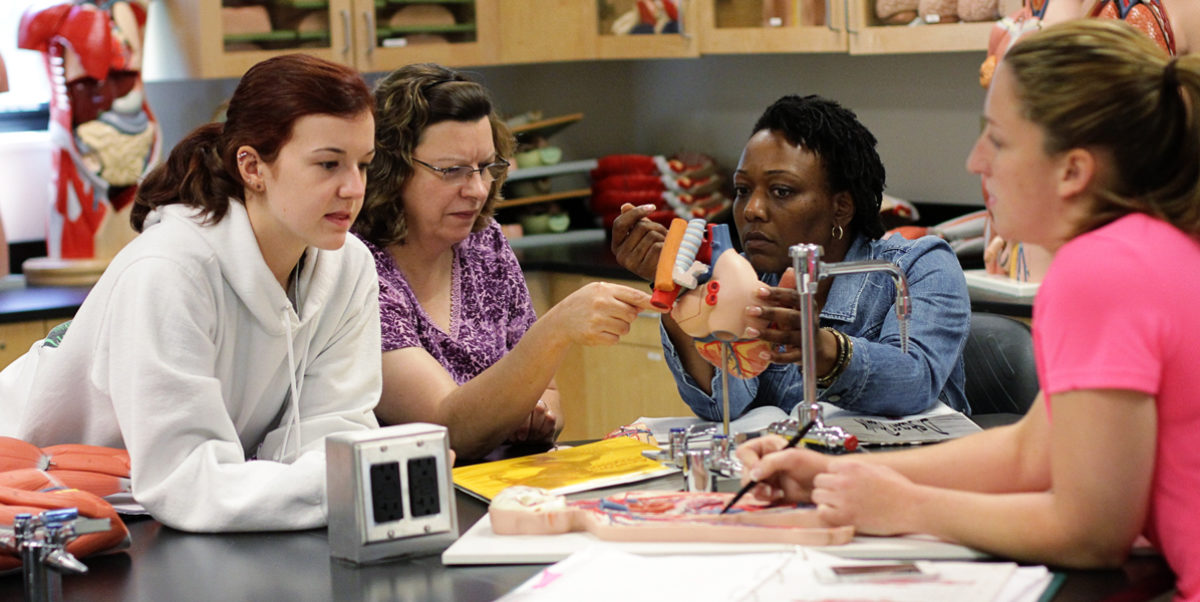Biology

BPS Baccalaureate Program
Division of Arts, Sciences and Professional Studies | Biology
The Bachelor’s in Professional Studies (BPS) in Biology program prepares graduates with the necessary skills and competencies to attain careers in biology and health related fields. The program also prepares graduates to further their education in graduate and professional schools. Students who complete the core courses and electives gain fundamental natural science skills and a deep understanding of the biological principles governing life. Graduates obtain the skills needed to be independent, life-long learners, including the ability to evaluate scientific issues that affect daily life and society.
The program is designed to maximize diverse academic interests, allowing a flexible curricular pathway where students can customize their elective choices to meet their professional goals and interests. In addition to completing a BPS Biology core, students take an array of electives allowing them specialized instruction in areas such as public health, biological research, or biology generalist.
Trocaire’s BPS in Biology is designed for all students seeking accessible, flexible baccalaureate education. The program maximizes progression for direct entry, transfer as well as degree completers through a flexible curriculum with seated, online and hands on experiential course selections. This degree provides students with a solid scientific background to start their healthcare education or to seek fulfilling employment in the healthcare, science, pharmaceutical sales and education fields.
Additionally, students can choose to customize their education by taking courses in various focus areas such as Public Health or Biological Research, or pursue a pre-med pathway.
Program Format
Time of Program: 15-week courses. Day, evening, seated and online.
Mode of Delivery: Hybrid (On-site/seated and Online)

